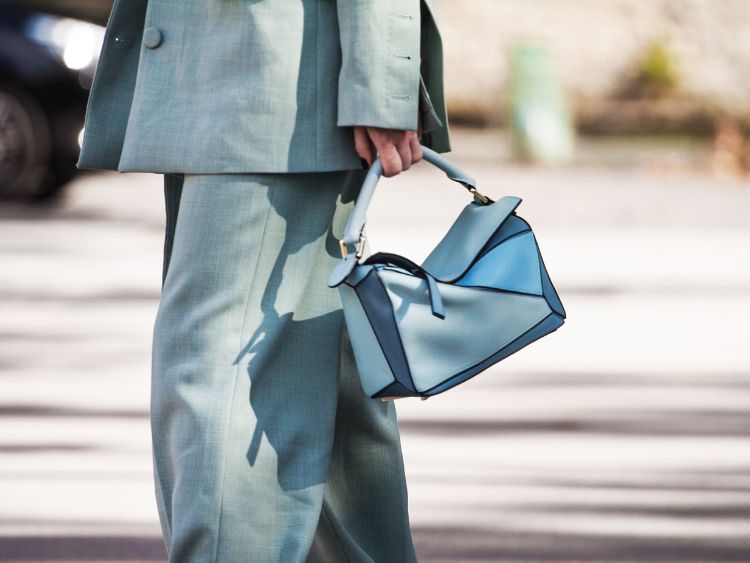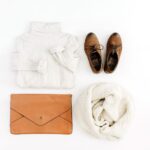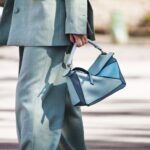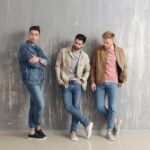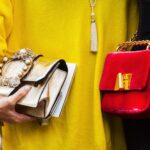The 1970s were a time of revolution — not just in politics and music but in fashion as well. It was an era where boundaries were pushed, norms were challenged, and style became a reflection of self-expression and individuality. From disco lights to flower power, the ’70s was a decade that made bold fashion statements, many of which still resonate in today’s trends. But what exactly defined 1970s fashion? How did it shape the clothing choices we see on the runways and in streetwear today? Let’s dive into the world of bell bottoms, platform shoes, and polyester to explore how 1970s fashion left an indelible mark on the fashion industry.
The Birth of Bohemian Chic
One of the most enduring trends to emerge from the 1970s is the bohemian, or “boho,” style. Inspired by the countercultural movements of the ’60s, this trend carried over into the ’70s, but with a twist. While the ’60s favored free-flowing, loose designs, the ’70s added a layer of elegance and sophistication. Peasant blouses, embroidered tunics, and long, flowing skirts were all staple items. The earthy color palette — think deep browns, oranges, and mustards — helped to define this look.
Boho chic wasn’t just about clothing; it was a lifestyle. People who embraced this style often did so to reflect their free-spirited nature. They gravitated toward natural fabrics, loose fits, and ethnic prints.
Key Boho Fashion Pieces:
- Flared jeans
- Maxi skirts and dresses
- Fringe details
- Crochet tops
- Wide-brimmed hats
Boho chic from the 1970s continues to influence festival fashion, like at Coachella, where it has made a big comeback.
Disco Fever: When Fashion Hit the Dancefloor
If the boho style was laid-back, disco fashion was the complete opposite. Bright, shiny, and loud, disco took over the second half of the decade, with many designers embracing the “more is more” mentality. Sequins, metallic fabrics, and jumpsuits became wardrobe essentials for nights out at the discotheque.
Think about iconic images from “Saturday Night Fever” — the glimmering lights, the shiny dance floors, and of course, the outfits that stole the show. Platform shoes, satin shirts, and skin-tight pants were all part of the disco uniform. Bold patterns, including geometric designs and bold stripes, were a hallmark of the disco era.
The disco trend also brought about the rise of the jumpsuit, a piece that became synonymous with the nightclub scene. This one-piece outfit was not only practical but also made a bold style statement. Paired with platform heels and oversized sunglasses, the jumpsuit was the ultimate look for those looking to turn heads.
Essential Disco Fashion Items:
- Jumpsuits
- Sequined dresses
- Bell-bottom trousers
- Platform shoes
- Gold chains
The Power of the Pantsuit
The 1970s saw a significant shift in women’s fashion as more women entered the workforce and demanded attire that was both functional and fashionable. Enter the pantsuit. Women started to reject the restrictive clothing of previous decades in favor of more practical, comfortable attire. The pantsuit was not only a fashion statement but a symbol of women’s growing independence and empowerment.
Tailored suits in bold colors became a popular choice, particularly for women who worked in offices. Designers like Yves Saint Laurent capitalized on this trend, creating sleek and stylish pantsuits that exuded both confidence and elegance. The pantsuit is a prime example of how 1970s fashion didn’t just follow trends but shaped cultural movements.
Must-Have Pantsuit Pieces:
- Wide-legged trousers
- Double-breasted blazers
- High-waisted trousers
- Silk blouses
Denim: The Everyday Staple
If there was one fabric that truly defined 1970s fashion, it was denim. Jeans became a universal symbol of casual, cool style. But these weren’t just any jeans — the 1970s was all about the flare. Flared and bell-bottom jeans dominated wardrobes across the globe. Paired with simple t-shirts or statement blouses, jeans were the go-to for both men and women.
The versatility of denim in the ’70s allowed for personal creativity. Whether they were embroidered, distressed, or patched, jeans offered individuals a way to showcase their unique style. Beyond flares, other denim items like jackets and skirts also became popular, often adorned with fringe or embellishments.
Popular Denim Trends:
- Bell-bottom jeans
- Denim jackets
- Jean skirts
- Embroidered or patched denim
The Rise of Glam Rock
In contrast to the laid-back vibes of boho and disco’s sparkle, glam rock came onto the scene with a fierce edge. Inspired by musicians like David Bowie, glam rock fashion was all about pushing boundaries and playing with androgyny. It wasn’t just about wearing clothes; it was about making a statement.
Tight leather pants, platform boots, and glittery makeup were all elements of this bold fashion movement. The glam rock style was often characterized by its futuristic and space-age aesthetics, with metallic fabrics and bold color schemes.
Signature Glam Rock Pieces:
- Leather jackets
- Platform boots
- Shiny, metallic clothing
- Face glitter
- Tight-fitting tops and pants
Footwear of the ’70s: Platforms and Clogs
When it came to shoes, the ’70s were all about height. Platform shoes and clogs became wildly popular, both for their distinctive look and their ability to give wearers a little extra height. Platforms weren’t just for women, though; men also embraced this trend, particularly in the disco scene.
Clogs, on the other hand, leaned more into the boho aesthetic. These chunky, wooden-soled shoes were often worn with flowing skirts or wide-legged pants. Today, platform shoes have made a major comeback, often seen paired with modern twists on ’70s-inspired outfits.
Iconic ’70s Footwear:
- Platform shoes
- Clogs
- Wooden sandals
- Block heels
The Influence of Music and Pop Culture
It’s impossible to talk about 1970s fashion without acknowledging the major influence of music and pop culture. Whether it was the hippie movements at the start of the decade or the disco craze that followed, music was at the heart of many fashion trends. Artists like Jimi Hendrix, Cher, and ABBA were fashion icons in their own right, inspiring millions to adopt their flamboyant styles.
Music-Inspired Fashion Trends:
- Hippie headbands
- Flowing capes (a la Stevie Nicks)
- Jumpsuits inspired by ABBA
- Bold stage makeup and costumes
FAQs
What was the most popular fashion trend in the 1970s?
The most popular trend of the 1970s was bell-bottom jeans, which became a symbol of the era’s fashion. Whether worn casually or dressed up for a night out, they were a wardrobe staple for both men and women.
How did 1970s fashion influence today’s styles?
Many elements from 1970s fashion, such as boho-chic, platform shoes, and high-waisted trousers, continue to influence modern fashion. Designers today frequently draw inspiration from the bold and eclectic looks of this decade.
What was the difference between disco fashion and boho style in the ’70s?
Disco fashion was all about shine and glamour, with sequins, jumpsuits, and platform shoes defining the style. In contrast, boho fashion embraced a more laid-back, earthy vibe with flowing fabrics, fringe, and natural tones.
Why were pantsuits significant in the 1970s?
Pantsuits were a symbol of women’s liberation and independence in the ’70s. As more women entered the workforce, the demand for stylish yet practical clothing grew, making the pantsuit a fashionable yet functional option.
Conclusion
1970s fashion was much more than just a collection of trends. It was a reflection of the cultural shifts and the societal changes that shaped the decade. From the rise of disco to the bohemian takeover, the ’70s introduced styles that remain influential today. Whether it’s through the resurgence of flared jeans or the continued popularity of boho-chic, the fashion of this era still holds a prominent place in the world of style.
For those looking to draw inspiration from this bold era, 1970s fashion offers a world of creativity, self-expression, and timeless pieces that continue to inspire generations.

